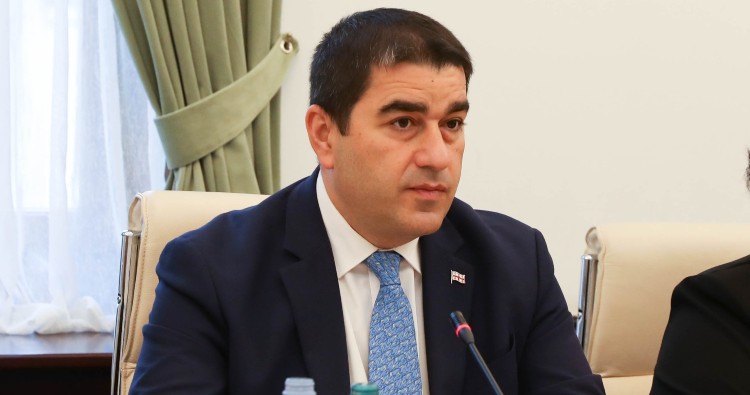Transparency bill to ensure public knows “who wields influence over their lives” - Parliament Speaker

He explained the proposed law “introduces a single and simple rule”, that any organisation engaging in public activities with “significant foreign funding must disclose this to the public”, adding “this is a basic standard of transparency”. Photo via Parliament of Georgia
Georgian Parliament Speaker Shalva Papuashvili on Wednesday said the principle of the bill on the transparency of foreign influence, initiated by the parliamentary majority, was “simple” that the public deserved to know “who wields influence over their lives”.
“A significant portion of funding” of non-governmental organisations in Georgia “lacks transparency”, Papuashvili noted while commenting on the ruling Georgian Dream party’s decision earlier today to reinitiate the controversial draft law - that was retracted last year following public protests - which would designate organisations that derive more than 20 percent of their funding from abroad as “pursuing the interests of a foreign power”.
Despite “multiple attempts” to persuade both international donors and local recipients of the importance of transparency to the public, these “efforts have been futile”, the Parliament Speaker emphasised, pointing out that “despite recognising the flaws”, the NGOs “have made no practical steps” to improve the transparency.
In an era of rising hybrid and informational warfare, the lack of such law leaves our country and society vulnerable. We cannot afford to be caught in the crosswinds of these emerging threats with empty hands”, the Parliament official noted.
He explained the proposed law “introduces a single and simple rule”, that any organisation engaging in public activities with “significant foreign funding must disclose this to the public”, adding “this is a basic standard of transparency”.
This law sends a clear message that we are an open, free, and democratic state, welcoming everyone who respects fundamental principles of transparency and democracy. Good deeds do not need to be hidden”, Papuashvili added.
The draft law on transparency of foreign influence has already been initiated in the legislative body, and the bill changes will be presented at the Bureau session next week.
The Georgian Parliament last year formally retracted the draft law following the decision by the ruling Georgian Dream party to withdraw the bill, after Georgian-based non-governmental organisations, the United States Department of State, European Union officials and the United Nations Office in Georgia all spoke out in criticism of the bill.
 Tweet
Tweet  Share
Share